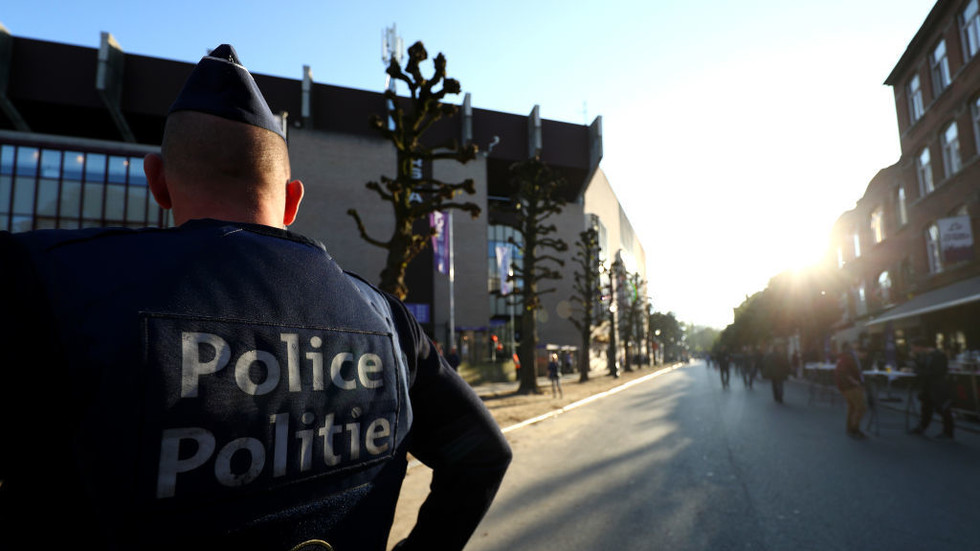Unraveling the Arrest: A Ukrainian Teen’s Alleged Mosque Terror Plot
A startling incident has emerged from Ukraine, where a teenager has been arrested under serious allegations of plotting a terror attack on a local mosque. This shocking revelation compels us to delve deeper into the implications of radicalization among youth and the broader socio-political climate that may contribute to such actions. The case raises pivotal questions about the radicalization process, the role of young people in contemporary conflicts, and the ways communities can combat extremist ideologies.
The Incident: What Happened?
According to law enforcement officials, the arrest of the 17-year-old boy occurred after a thorough investigation into suspicious online activities that hinted at a potential attack. Authorities reported that the teen had been engaging with extremist groups online, expressing a desire to carry out violence against the mosque, which he viewed as a symbol of opposing ideologies. The investigation revealed plans that were alarming enough to warrant immediate action by the police.
While details of the alleged plot remain sparse as investigations unfold, it has been confirmed that the authorities acted swiftly to prevent any potential loss of life. The teen is currently in custody, and the legal process is underway. This situation has sent shockwaves through the local community and has raised concerns about safety and security.
Understanding Radicalization
Radicalization is a complex process that often leads individuals, particularly youth, to adopt extremist beliefs that can culminate in violence. Several factors contribute to radicalization, including:
- Social Isolation: Many young people may feel disconnected from their communities, leading them to seek belonging in extremist groups.
- Ideological Influence: Exposure to extremist ideologies online can shape vulnerable minds, especially those seeking answers to personal or societal grievances.
- Rebellion Against Authority: Adolescents often grapple with authority figures, and in some cases, this can manifest as a desire to rebel through violent means.
- Peer Pressure: The influence of peers can play a significant role, as young individuals may feel compelled to conform to group norms or expectations.
Understanding these factors is crucial for developing effective prevention strategies. Community-based initiatives that foster inclusion and dialogue can help combat the allure of extremist ideologies.
The Role of Youth in Contemporary Conflicts
Younger generations are significantly impacted by the socio-political landscape. In many parts of the world, including Ukraine, youth find themselves at the crossroads of tradition and modernity, often feeling the weight of global conflicts on their shoulders. The following aspects highlight the role of youth in these contemporary conflicts:
- Access to Information: The internet provides young people with unprecedented access to ideas and ideologies, both benign and extremist. This accessibility can empower them but also expose them to harmful narratives.
- Political Engagement: Many youth are becoming increasingly politically aware and active, participating in protests and movements that can either challenge or reinforce radical ideologies.
- Identity Formation: Adolescents are in a critical phase of identity development, during which they may latch onto movements that promise a sense of belonging or purpose.
By fostering environments that encourage critical thinking and open discussion, communities can help guide youth away from violent extremism and toward constructive paths.
Community Responses and Prevention Strategies
In light of the recent arrest, community leaders and organizations are urged to consider proactive measures to prevent radicalization among youth. Here are some strategies that can be implemented:
- Dialogue Initiatives: Organizing community dialogues can help bridge gaps between different cultural and religious groups, fostering understanding and tolerance.
- Educational Programs: Schools can introduce programs that educate students about extremism, critical thinking, and the importance of diversity.
- Mentorship Opportunities: Establishing mentorship programs that connect youth with positive role models can provide guidance and support during formative years.
- Online Monitoring: Engaging with online platforms to monitor and counteract extremist content can help protect vulnerable youth from radical influences.
These strategies require collaboration among law enforcement, educational institutions, and community organizations to create a comprehensive approach to prevention.
The Broader Implications
The arrest of the Ukrainian teenager is not just an isolated incident; it reflects a broader global challenge related to youth radicalization and extremism. As globalization continues to intertwine communities, the risks associated with extremist ideologies become more pronounced. It is essential for societies to recognize that:
- The consequences of radicalization extend beyond individual incidents; they can lead to community division and increased tensions among different social groups.
- Addressing the root causes of radicalization—such as social inequality, lack of opportunities, and cultural misunderstandings—can lead to more effective solutions.
- International cooperation is vital in sharing best practices and resources to combat the rise of extremism on a global scale.
Ultimately, the focus should shift from merely responding to incidents of violence to fostering resilience in communities, empowering youth, and promoting peace-building efforts. While the arrest of one individual is a serious concern, it also serves as a wake-up call for communities to take proactive steps in addressing the underlying issues of radicalization.
Conclusion
The incident involving the Ukrainian teenager accused of plotting a terror attack on a mosque invites a crucial conversation about the vulnerability of youth to radicalization. It highlights the importance of community action, education, and dialogue in preventing extremism. By understanding the factors that lead to radicalization and implementing comprehensive strategies, we can work towards a more inclusive and peaceful society, ensuring that young people find positive outlets for their energy and ideals rather than succumbing to violence and hate.
See more CNN Headline


